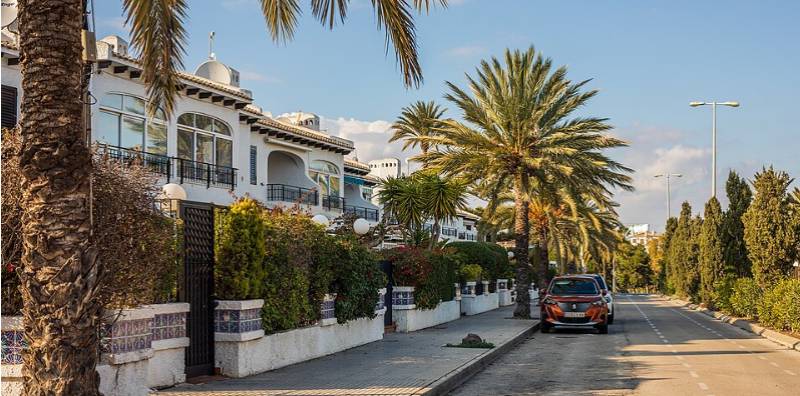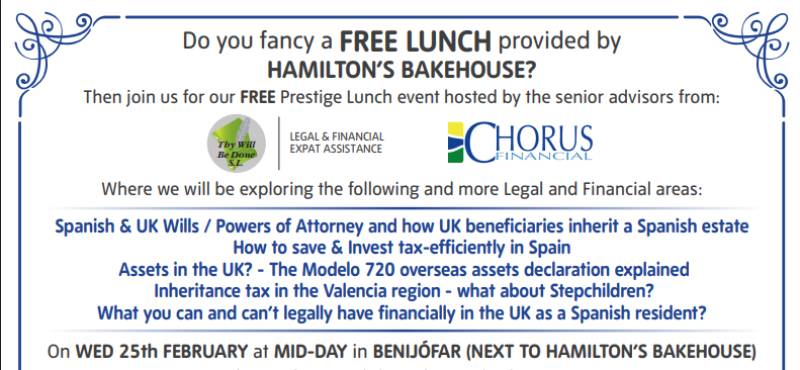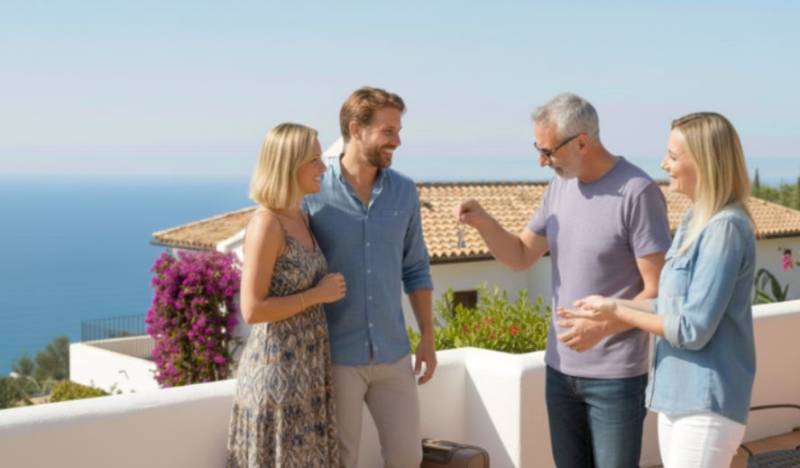- Region
- Vega baja
- Marina Alta
- Marina Baixa
- Alicante
- Baix Vinalopo
- Alto & Mitja Vinalopo
-
ALL TOWNS
- ALICANTE TOWNS
- Albatera
- Alfaz Del Pi
- Alicante City
- Alcoy
- Almoradi
- Benitatxell
- Bigastro
- Benferri
- Benidorm
- Calosa de Segura
- Calpe
- Catral
- Costa Blanca
- Cox
- Daya Vieja
- Denia
- Elche
- Elda
- Granja de Rocamora
- Guardamar del Segura
- Jacarilla
- Los Montesinos
- Orihuela
- Pedreguer
- Pilar de Horadada
- Playa Flamenca
- Quesada
- Rafal
- Redovan
- Rojales
- San Isidro
- Torrevieja
- Comunidad Valenciana
article_detail
Date Published: 20/02/2023
Light at the end of the tunnel for tens of thousands of Brits living in illegal Alicante and Valencia homes
A new project hopes to finally legalise more than 194,000 homes, many of which were sold to expats in Alicante province over the last two decades
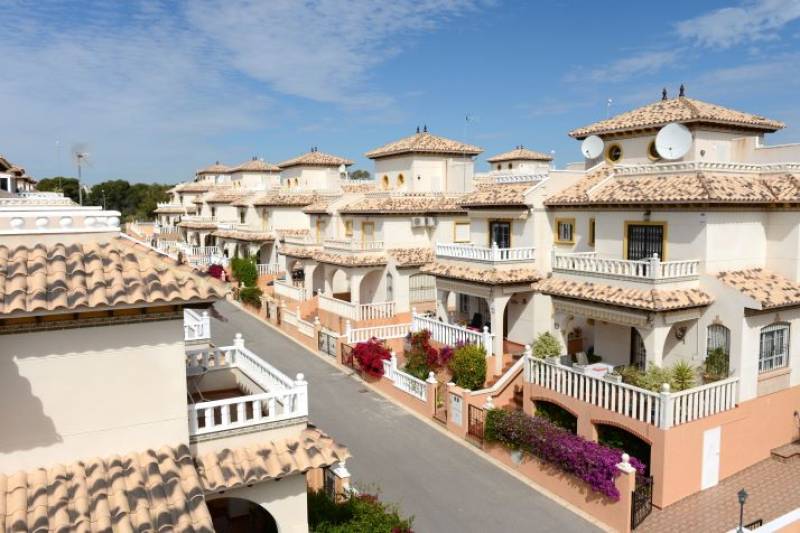
The nightmare may soon be over for thousands of Brits, Germans and expats of other nationalities who have been fighting to get their illegally constructed homes on the Costa Blanca and in the Valencia Region officially recognised for over 20 years.
The problem came about when the properties were built without a licence on green-belt land, many of them during the construction boom before Spain’s property bubble burst in 2008 and some as early as the 1990s. The promoters of these homes took shortcuts when it came to planning procedures in order to accelerate building times and generate profits more quickly.
They were then sold on to unsuspecting, mainly foreign buyers who – through no fault of their own in many cases – were later informed that their properties were not eligible to receive an occupational licence, and therefore could not get basic services like wastewater facilities and access roads, which had a devastating effect on their value.
Other areas where unlicensed building has proliferated include protected land and isolated houses in the mountains, and there are also a lot of rural buildings purporting to be “toolsheds” but which in reality serve as summer holiday getaways.
While many homes were later able to get occupational licences, those licences do not in any way legalise the property and they are still mired in legal setbacks. Through the actions of bad legal advisors and unscrupulous promoters, the expats who bought these properties in good faith and with no knowledge of the mess into which they were entering have been left in limbo, some of them for the best part of 20 years, with no hopes of either improving their situation or selling up and getting out.
Now, though, the Valencia regional government has finally set up a streamlined process to allow the owners of these homes to legalise them once and for all. It’s estimated that there are some 194,000 properties in this illegal situation, and around 192,000 of them are eligible to be legalised.
How does it work?
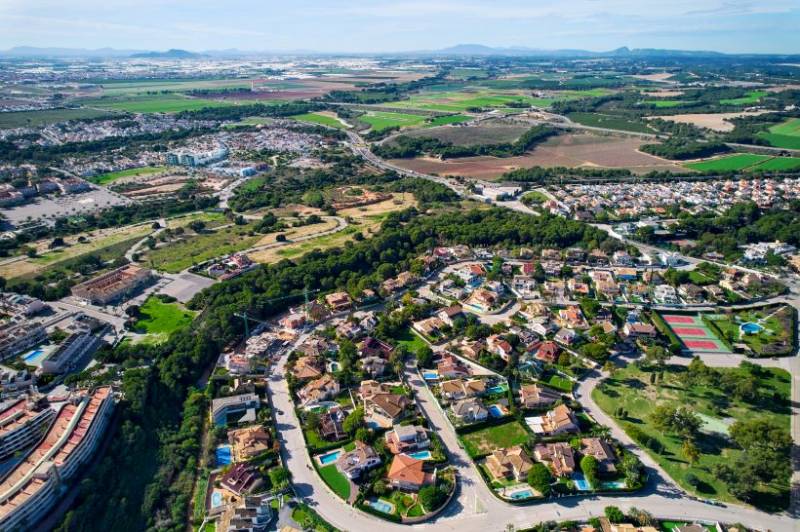
The solution that has been put forward by the regional authorities, and which is already being implemented in towns up and down the Costa Blanca, is genius in its simplicity.
Essentially, there are four pieces to the puzzle: a change in the law on the Statute of Limitations; a new kind of licence to formalise the homes as legal; a specialised agency to oversee the project and ensure that more illegal builds aren’t built; and a reduction in the waiting times needed to get a municipal technical report.
1. Statute of Limitations
The law states that if the Statute of Limitations runs out on the construction of the homes, those properties become legally unattackable. They become “untouchable” by either the local authorities or the owners themselves, who are not allowed to make improvements or even maintain the properties, leaving only two options: wrack and ruin or voluntary demolition. In 2014, the government extended the Statute of Limitations from 4 years to 15 years, giving the authorities up until 2029 to fine the owners and demolish those properties before they reach the statute of limitations. Then, in 2019, the Statute of Limitations on these homes was scrapped altogether, meaning that the properties built after that date will always face the prospect of fines and demolition.
2. MIT licences
At the same time, the Valencia Government has agreed to offer MIT licences, which stands for Territorial Impact Minimization (Minimización de Impacto Territorial). What this basically means is that, above and beyond a licence of occupation, the properties will be certified as having the legal minimum standards, building conditions, water and energy supply, waste treatment and safe access.
The affected owners have to prove they are minimising the impact their property has on the environment due to uncontrolled polluting discharges of sewage into the subsoil, as well as potential dangers, such as fires and flooding, and get a technical report to prove it. As such, the conditions for obtaining an MIT are far less stringent than those for getting an occupation licence, and so it is hoped that this will mean more homes are able to be legalised. In this way, the MIT “represents a unique environmental, social and economic opportunity, not only for the homeowners who are directly affected but also for the community as a whole”.
3. New AVPT agency
They are also setting up a new dedicated agency, the Agencia Valenciana de Protección del Territorio or AVPT, which will basically ensure proper oversight of the granting of MIT licences and ensure more illegal builds aren’t built or registered, such as formalising a shed or a shack as a holiday home, for example.
4. Reduced waiting times
Finally, there is hope for Brits and other homeowners locked in this situation thanks to reduced waiting times to get the municipal report necessary to obtain a licence. The waiting list through the traditional municipal avenue can reach up to three years, so the authorities have broadened the scope of the type of technician who is able to issue these reports. By using one of these ECUV private entities, that waiting time can be reduced to just a few days.
With this new, fast-track process, it’s hoped that the nightmare which has plagued some British property owners on the Costa Blanca for over 20 years, could be over in the space of just a few months.
staff.inc.ali
Loading
Sign up for the Spanish News Today Editors Roundup Weekly Bulletin and get an email with all the week’s news straight to your inbox
Special offer: Subscribe now for 25% off (36.95 euros for 48 Bulletins)
OR
you can sign up to our FREE weekly roundup!
Read some of our recent bulletins:
Discount Special Offer subscription:
36.95€ for 48 Editor’s Weekly News Roundup bulletins!
Please CLICK THE BUTTON to subscribe.
(List price 3 months 12 Bulletins)
Read more stories from around Spain:
Contact Murcia Today: Editorial 000 000 000 /
Office 000 000 000











